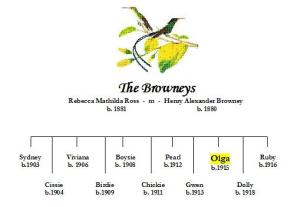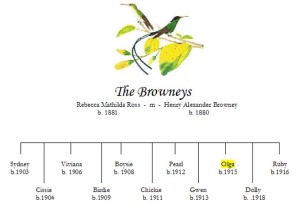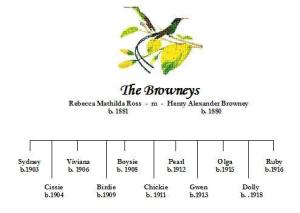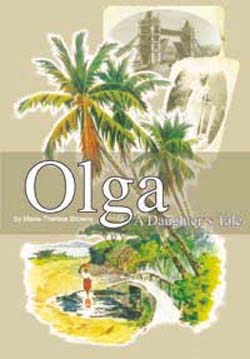<–Becky’s First Encounter with Obeah Becky & Living in Kingston, Jamaica –>
During slavery, the plantation remained the most important unit and a rigid class system existed. You were judged to be important according to the type of work you did, by the colour of your skin and how much money and land you owned.
At the beginning of the twentieth century, slavery’s legacy was the social structure it had created before Emancipation – a three-tier class structure at the top of which was the white upper class. Then came the coloureds, followed by the blacks. Although Jamaican whites did mix with coloureds in official and business circles, because of their colour prejudice, they refused to mix with them socially. As for the blacks, both the whites and the coloureds treated them as if they were less than human, although there were some exceptions.
Extract from Great Aunt Lucy’s Diary 1902
<–Becky’s First Encounter with Obeah Becky & Living in Kingston, Jamaica —>
Becky left “Mon Repose” very early this morning leaving a note asking Martha and me to meet her at the hotel in the afternoon as she had something to tell us. Martha is considering staying on in Jamaica and opening a dress salon, but is hesitant about taking such a big step. She has struck up a friendship with Thomas Bonnett who owns a large department store on Harbour Street. Apparently he was very impressed when she told him she worked at the Theatre Royal in Drury Lane and he realised she had skills he could make use of. Thomas suggested she stayed on in Jamaica and work for him, until she felt the time was right to start up on her own, or returned to England, whichever she decided to do.
Becky’s always been self-sufficient and can amuse herself. Sometimes she takes a boat to Port Royal, the train to Montego Bay or Port Antonio. One day I asked her if she makes these trips alone and she confessed she had met someone special. I suspect this “someone special” is the reason she has asked Martha and I to meet her here.
The Constant Spring must be the most beautifully situated Hotel in the whole of Jamaica. It’s as tropical as you can get, set 600 feet above sea level and at the foot of the Blue Mountains amid sugar, banana, pineapple and coffee estates.
As you come up the front steps of the hotel there is a splendid Royal Palm tree standing in the main entrance. Inside it is cool, comfortable and elegantly furnished and outside there are spacious cool verandas where you can sit and take in the scent given off from the exotic and colourful tropical plants and shrubs that fill the hotel’s gardens. The hotel serves wonderful ice cold fresh fruit drinks, like pineapple and coconut or the hotel’s specialty, a drink called matrimony, made with the pulp of an orange and a custard apple which is what Martha and I are drinking while we waited for Becky.
On an immaculate green lawn to my left a group of men and women are playing croquet. On my right, elderly guests, who find the sun too hot, sit under shaded arbours and tropical foliage which provides shelter from the unrelenting sun, either reading or quietly talking; elsewhere some children are shrieking and laughing while playing, what sounds like, a game of hide and seek, in the hotel’s specially designed children’s garden.
Sitting a few tables away from me are some men and women talking and laughing loudly at the tactics that had taken place at a practice game on the polo field that morning. And in front of me beyond the gardens and shrubbery, is the tennis court from where, in the distance, I can hear a game is being played and the players calling out “well played” and “good shot” as a winning point is scored.
At last I saw Becky coming towards me. She looked beautiful. Her long blond hair tied loosely back with a yellow ribbon and wearing a simple white dress which showed off her perfect, slim figure. She was holding hands with a good looking young man and laughing at something he was saying to her, both of them completely oblivious to the glances the other guests were giving them.
I knew immediately they were in love. They sat down still holding hands and Becky introduced him to Martha and me.
“This is Henry” Becky said and then she paused before she added “and Henry has asked me to marry him.”
His name was Henry Alexander Browney and he owned a meat market down by Kingston Harbour. Becky chatted away, telling us how they met and Henry sat quietly listening. There was a pounding in my head and I felt dizzy and slightly nauseous. I reached out for my drink, my matrimony, but knocked it over – an involuntary action or a reaction. I couldn’t say. Becky was still chattering away singing Henry’s praises.
“He’s charming, intelligent, articulate, well read and very amusing” she told us. I agree that any man with those attributes one would consider to be a real catch for a woman. But as Becky sat next to him in her pretty white dress I could only focus on the fact that Henry was as black as coal!
It is not an exaggeration to call Jamaica a paradise. But it has an ugly past. Non whites far outnumber whites and the colour and social prejudice, which was the mainstay of slavery, remains today. The white upper classes still have all the economic control, social prestige, political power and status. They still see as inferior the middle class, who range from almost white to pure black and who may be lawyers, doctors, business men or women, teachers, clergy, and skilled tradesmen.
It is true that this class is not barred from occupying a position in any walk of life, including public service, providing they are suitably educated and qualified. Some of them are magistrates of Petty Sessions, and some are Chief Magistrates of their Parishes. In the capacity of their professional positions they can and do associate with white people on equal terms. But that is where the association stops. In their private social life white Jamaican, with a few minor exceptions, refuse to mix with educated and wealthy coloureds or blacks.
It came as a surprise to me that these middle classes don’t want or expect to be invited into white Jamaican circles. Because of indoctrination during slavery, the coloureds believed they were inferior to white people but superior to the blacks and in turn the blacks believed they were inferior to both groups.
But what has changed significantly with the middle classes is the tendency to be very obsessed with skin colour and what they consider to be good European-type features, like the shape of a nose and hair. It seems that with emancipation the question of colour seems to have become more, rather than less, important as a sign of status.
A marriage between a coloured man and white woman would be superficially acceptable if he were very rich and influential, which in itself would be a very rare occurrence, but would also be considered damaging to the purity of the white race.
A marriage between a white man and coloured woman would be tolerated. I saw this advertisement recently in the Daily Gleaner.
SCOTTISH MAN, 28, SEEKS ATTRACTIVE WEALTHY COLOURED LADY
WITH A VIEW TO MARRIAGE.
PLEASE SEND PHOTOGRAPH AND DETAILS IN CONFIDENCE TO:
P O BOX 999, DAILY GLEANER, KINGSTON
It was not the first time I had seen something like this and I expect the young man will find what he’s looking for since there are quite a few rich coloured Jamaican women. He will get financially security and she will get a very cool and limited entry into white Jamaican society being excluded from the more prestigious events that were held.
The only relationship between a white man and a black woman that I have heard of was during slavery. White men don’t advertise for black woman to marry, even if they are wealthy and educated.
If Becky, a white woman, plans to go ahead with this marriage to a black man, she can expect, with a possible few exceptions, to be ostracised completely by Jamaicans whatever their colour, after all it wasn’t too long ago that it was against the law for a white woman to marry or have children with a black man.
I knew that with Becky’s news, Martha’s dream of owning a successful dress salon would suffer. I felt sorry for her because she had been tantalisingly close to achieving what she wanted most but being Becky’s sister would ensure that she too was excluded from Kingston’s elite social circle.
Martha said nothing throughout the meeting, but I read her eyes and her reaction was cold fury. I don’t think she looked at Henry but, as she got up to leave the table, she leaned towards Becky and whispered something in her ear.
As Martha left I realised the rest of the guests had all been watching us. Lucy and Henry were still sitting holding hands and maybe the enormity of what they were about to undertake was beginning to dawn on Becky. I worry for Becky’s future but am overwhelmed with admiration and so very proud of her. Prejudice does exist between Jamaicans and it is a strong person whose voice or actions make it clear that they are not part of the colour and social structure that operates here.
As Henry, Becky and I prepared to leave the hotel, I asked her what Martha had whispered. “Nothing. She was just being silly”.
That evening was a typical tropical night, still, beautiful and clear with the moon riding high in a cloudless sky. A wind slowly started to get up throughout the night and steadily increased in force until by about 2 am in the morning when it must have reached over 100 m.p.h. With it came a ferocious rainstorm and relentless thunder and lightning.
The next day the devastation was awful. Coconut trees that had stood for fifty years were torn up by the roots and thrown yards away as if they were matchsticks. Plantations, including my own, have been hit badly, but nowhere near as badly as the peasants who will have lost their homes as well as their crops. Years of work wiped out in one night. God knows what these poor people will do without money or means to restore the crops on which their livelihood entirely depends.
Martha called it retribution for Becky’s actions. A little dramatic, I thought. Shortly afterwards Martha returned home alone to England.
<–Becky’s First Encounter with Obeah Becky & Living in Kingston, Jamaica –>
If you enjoyed this post, please consider letting your friends know or leave a comment or subscribing to the feed to have future artices delivered to your feed reader.
Read Full Post »





